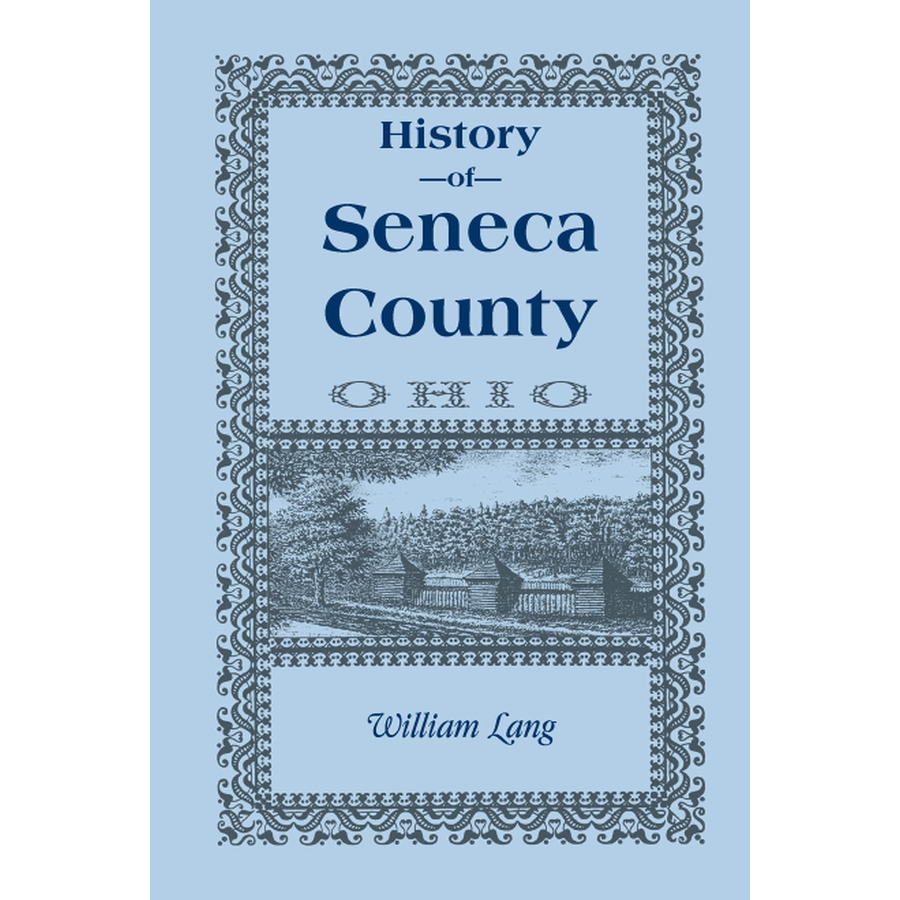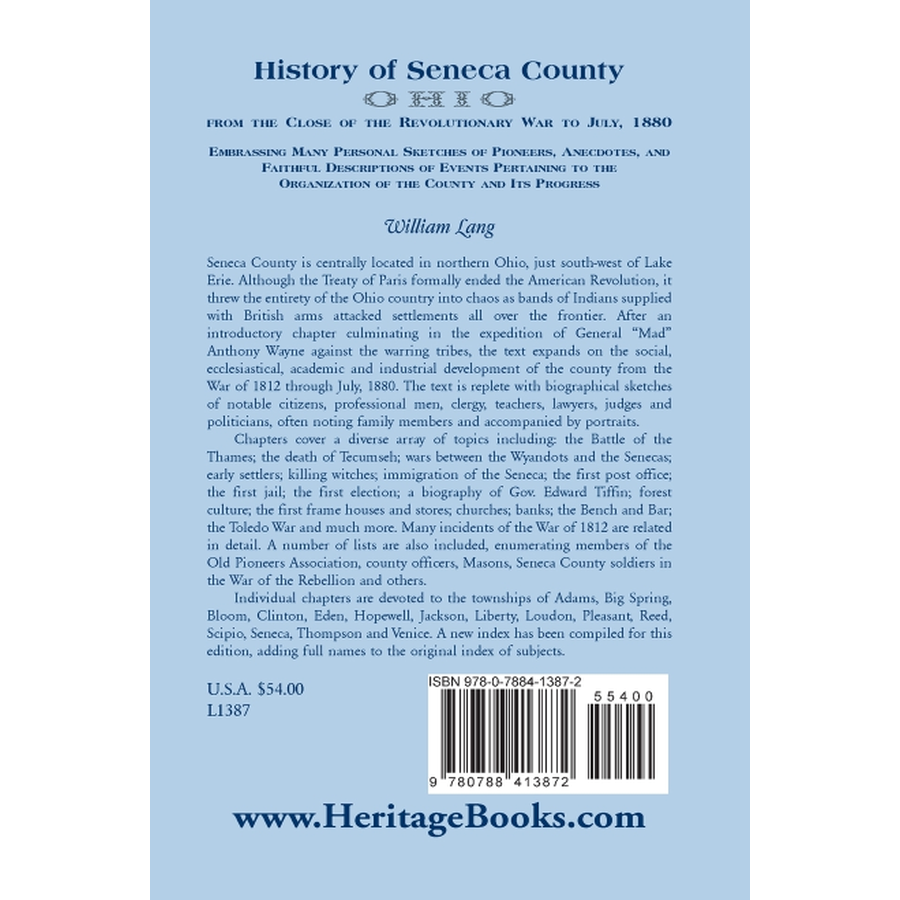History of Seneca County, Ohio: From the Close of the Revolutionary War to July 1880
Couldn't load pickup availability
Seneca County is centrally located in northern Ohio, just south-west of Lake Erie. Although the Treaty of Paris formally ended the American Revolution, it threw the entirety of the Ohio country into chaos as bands of Indians supplied with British arms attacked settlements all over the frontier. After an introductory chapter culminating in the expedition of Gen. "Mad" Anthony Wayne against the warring tribes, the text expands on the social, ecclesiastical, academic and industrial development of the county from the War of 1812 through July, 1880. The text is replete with biographical sketches of notable citizens, professional men, clergy, teachers, lawyers, judges and politicians, often noting family members and accompanied by portraits. Chapters cover a diverse array of topics including: the Battle of the Thames; the death of Tecumsah; wars between the Wyandots and the Senecas; early settlers; killing witches; immigration of the Seneca; the first post office; the first jail; the first election; a biography of Gov. Edward Tiffin; forest culture; the first frame houses and stores; churches; banks; the Bench and Bar; the Toledo War and much more. Many incidents of the War of 1812 are related in detail. A number of lists are also included, enumerating members of the Old Pioneers Association, county officers, Masons, Seneca County soldiers in the War of the Rebellion and others. Individual chapters are devoted to the townships of Adams, Big Spring, Bloom, Clinton, Eden, Hopewell, Jackson, Liberty, Loudon, Pleasant, Reed, Scipio, Seneca, Thompson and Venice. A new index has been compiled for this edition, adding full names to the original index of subjects.
William Lang
(1880, 1999), 2010, paper, index, 770 pp.
ISBN: 9780788413872
101-L1387

